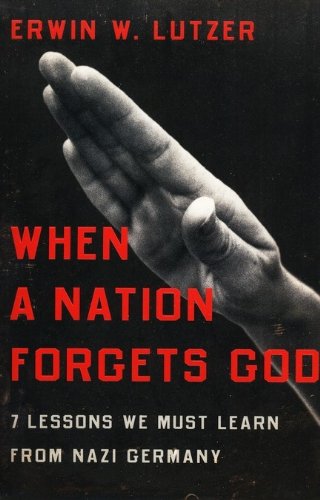Dear Sovereign Redeemer and other friends,
THIS JUST IN: Local church life isn’t for the faint of heart. There are people in those churches, and that means challenges for everyone who dares to engage in a meaningful way. That is as much a reality as gravity. What will we do with this reality? By the way we order our lives, we are choosing one of these options:
Option 1: Forget It
Simply exempt ourselves from it all. The bride has spots and wrinkles, so just steer clear. Sorry, not an option for Christians. Baby Christians might think like that, but people who have lived with that view for a long time need to be asking serious questions about why they are still so disconnected with the mind of Christ. Though she does have spots and wrinkles, Jesus Christ isn’t running away from His bride, He is running towards her: “Husbands, love your wives, just as Christ also loved the church and gave Himself for her, that He might sanctify and cleanse her with the washing of water by the word, that He might present her to Himself a glorious church, not having spot or wrinkle or any such thing, but that she should be holy and without blemish” (Ephesians 5:25-27).
This text helps correct our inclinations to exempt ourselves from the local church in two ways. First, it forces us to consider that we, each of us individually, contribute to the spots and wrinkles. Not the nebulous “them”. The specific “me”. A heaping helping of humble pie is essential for life in close quarters. Second, if the goal is to be conformed to the image of Jesus Christ and to have His mind, we need to see the church, and that means our local church, through His lenses of the ongoing, progressive sanctification that He is accomplishing in His people.
Option 2: Find the Perfect Church
There was a perfect church – God walked with Adam and Eve in the garden in the cool of the day for two whole chapters, and then came chapter three. Sin entered the world, and churches have never been the same. Deal with it. I’m not saying we shouldn’t be careful about what church we join, and I’m not saying people can never leave one church for another. I am saying that too many people have wasted too many years chasing a fantasy. Find a sound church and literally spend your life there, by Paul’s definition: “And I will very gladly spend and be spent for your souls; though the more abundantly I love you, the less I am loved” (2 Corinthians 12:15). As you can see, Paul did not suffer from naivety about church life. He simply pressed forward anyway.
Option 3: Keep It Unreal
Sinners in the church? No problem, we can just keep interaction at the surface level. Pre-damage control, as it were. Minimize the contact, minimize the risk. That way we can love doctrine without having to love people. But wait – isn’t the doctrine so we can love people? Matthew 22:36-40, “Teacher, which is the great commandment in the law?” Jesus said to him, “‘You shall love the LORD your God with all your heart, with all your soul, and with all your mind.’ This is the first and great commandment. And the second is like it: ‘You shall love your neighbor as yourself.’ On these two commandments hang all the Law and the Prophets.”
If love for God and neighbor is the great frame for all of this law that we are so eager to parse and nuance, if love is the fulfillment of the law (Romans 13:10), then loving the law of God without loving each other – as the Bible defines love in 1 Corinthians 13 and elsewhere – is way worse than silly. And for anyone who thinks they can nurture love for God while staying above messy entanglements with fellow believers, check 1 John 4:20, “If someone says, ‘I love God,’ and hates his brother, he is a liar; for he who does not love his brother whom he has seen, how can he love God whom he has not seen?” It is clear that love for God and love for each other have an unbreakable connection, and that this isn’t cotton-candy emotion only love, it is meat-and-potatoes sacrifice for each other love.
A local church where everything operates at the surface level is a Frankenstein of our own creation, not the Bible’s. Search the New Testament for the phrase “one another” and feast your eyes on how God actually wants us to live together.
Option 4: Embrace, Cultivate, and Maintain the Close Quarters
Oh, that God would give us hearts so full of His forgiveness, grace and love that we could look at the inherent dangers of living in close quarters and say “BRING IT ON!” Let it be said that I feel the full fury of the proverbial three fingers pointing back at me. What rises in my heart during the inevitable dust-ups that occur when we live together in close quarters condemns me for my own lack of love. But I have hope, because I know that I need to be different, I want to be different, and little by little I am starting to be different.
What about you? God brings His people together into close quarters for His own purposes. Proverbs 14:4, “Where no oxen are, the trough is clean; But much increase comes by the strength of an ox.” Do we want clean, or do we want strength for the kingdom of God? We have a big commission, a Great Commission, and when we settle for clean, we must understand how much strength is lost.
Trust God. He is right about the way we should live together. He is teaching me how to live in close quarters in a local church for His glory, and He is teaching you the same. Don’t exempt yourself. Call off the search for the perfect church. Commit yourself to a sound one and get below the surface in close quarter relationships for a long time. When we do that, though life together won’t always be “clean”, we will have the strength for serving God that we need and want.



